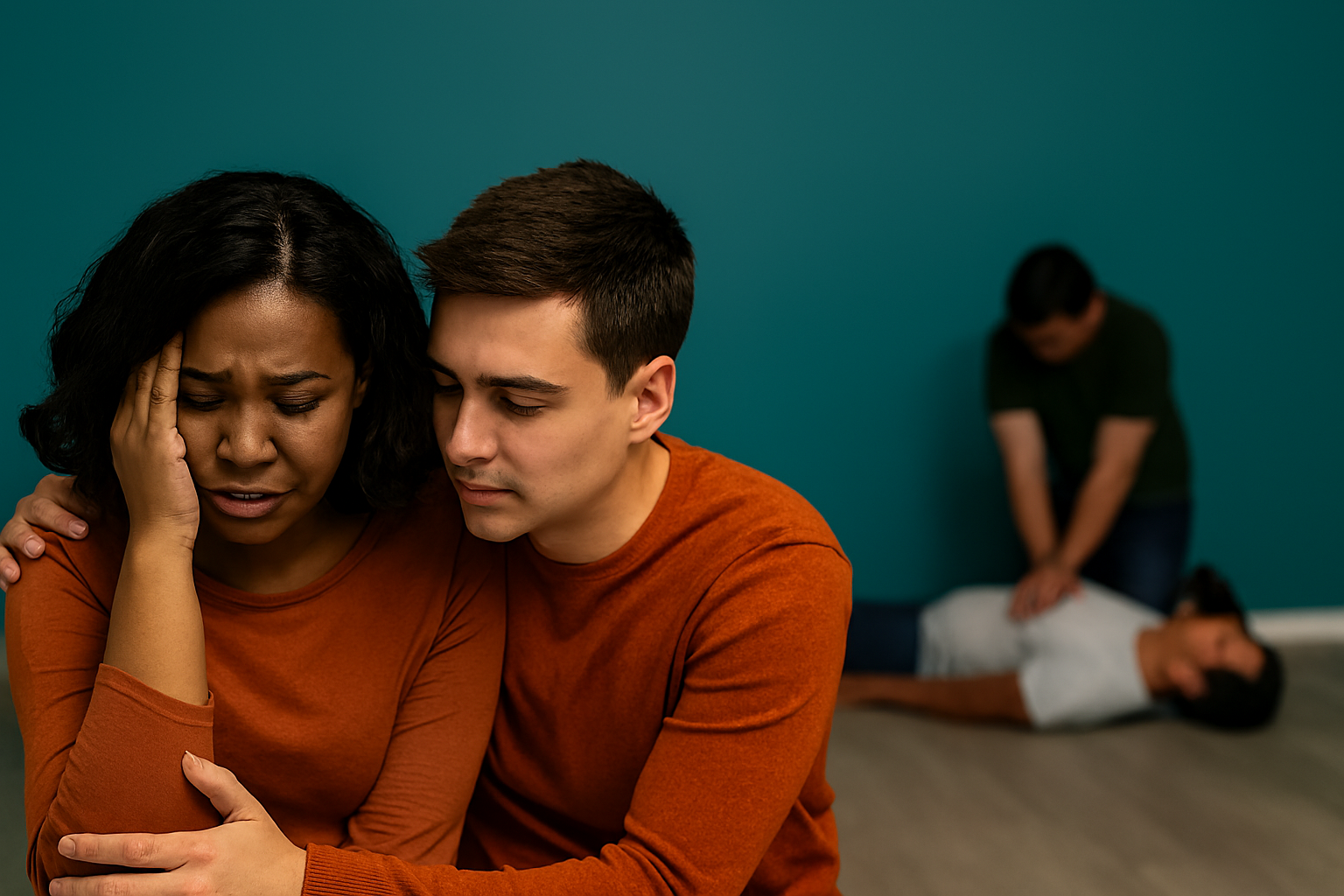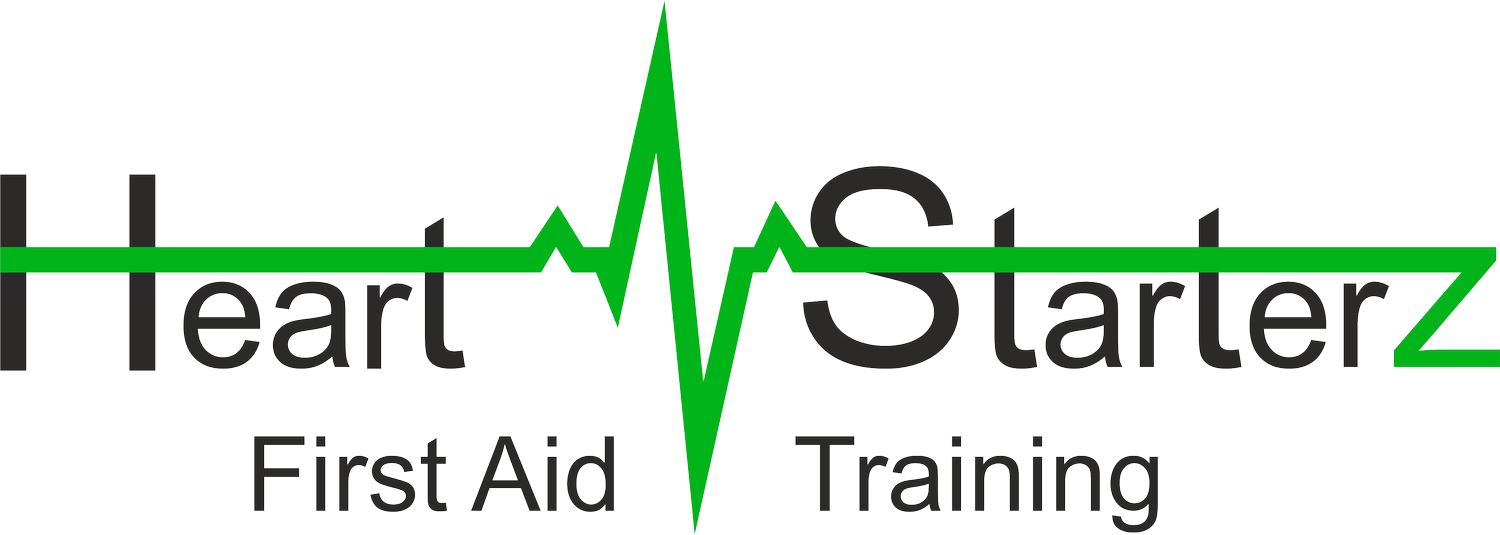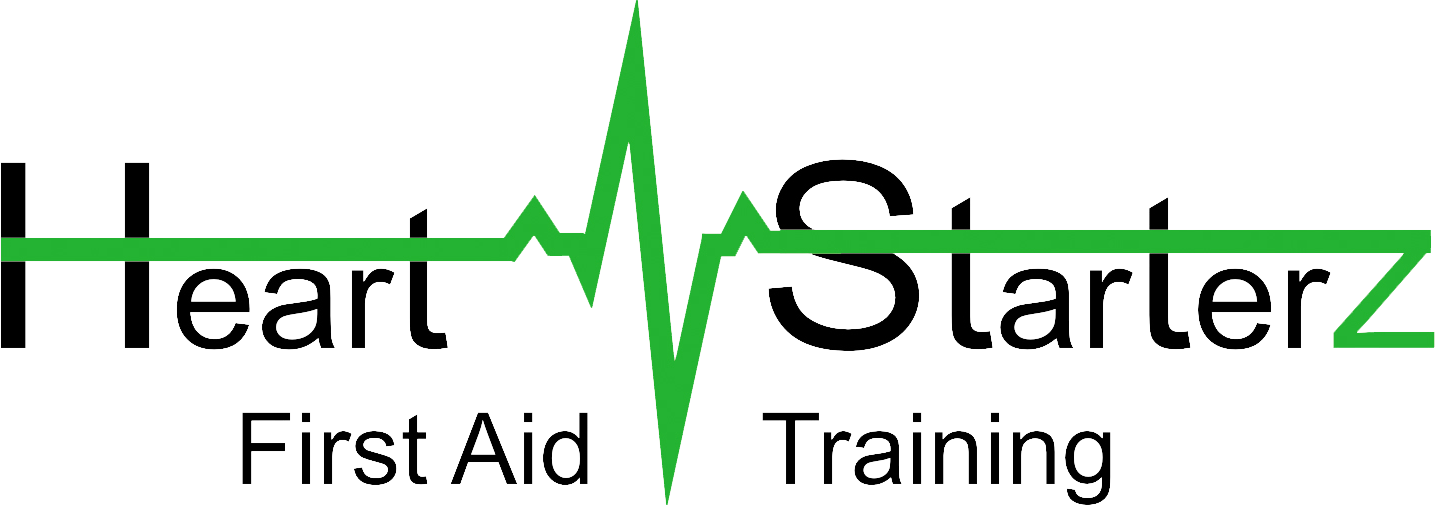
Coping After Performing CPR
Administering CPR to someone in cardiac arrest can be a deeply emotional and overwhelming experience. You might feel shaken or struggle to make sense of what just happened. We're here to offer guidance and support as you navigate the aftermath of this life-altering moment.
Coping After Performing CPR?
Once you've administered CPR, emergency responders will arrive and take over, continuing the life-saving care you began.
CPR helps maintain blood circulation, ensuring vital organs, especially the brain receive oxygen. If available, a defibrillator will be used to deliver a controlled electric shock in an effort to restore the heart’s rhythm. In many cases, police or paramedics will bring the defibrillator to the scene.
As soon as possible, the ambulance crew will transport the person to the hospital. If you know them, you may be asked to follow or meet them there.
In the moments after CPR, it’s completely normal to feel overwhelmed or in shock. You’ve just faced an intense and possibly traumatic situation, and it may take time to emotionally process what happened.
What Happens After You Perform CPR?
Stepping in to perform CPR is a courageous act, and many people are rightly admired for trying to save a life regardless of the outcome. Still, the experience can be deeply shocking and emotionally intense.
Because most cardiac arrests outside of hospitals occur at home, you may have performed CPR on someone close to you. The fear of nearly losing a loved one and the worry it could happen again is a common and understandable response.
If you gave CPR to a stranger, the suddenness of the situation and the emotional aftermath can be overwhelming. Many people struggle to make sense of such a life-altering event, especially when unfamiliar feelings arise and it's unclear how to process them.
Even seasoned medical professionals can be affected by the emotional toll of performing CPR. It’s completely normal to feel shaken, and taking care of your own well-being is essential. That might mean stepping away from work for a while, leaning on friends and family for support, or speaking with a mental health professional to help you work through the experience.
If the Person Survived After CPR
If the individual survived, you likely understand just how crucial your actions were in that moment.
Here are a few important things to keep in mind:
Many survivors don’t remember their cardiac arrest or the resuscitation process.
Experiencing cardiac arrest often leads people to make lifestyle changes or seek treatment for previously undiagnosed conditions changes that can significantly improve their quality of life.
Most survivors will receive ongoing care to help prevent future cardiac events.
If the person is someone close to you, like a friend or family member, it’s helpful to talk openly and share your emotions about what happened.
If the person was a stranger, staying in touch and expressing how the experience affected you can be meaningful for both of you.
What if CPR and defibrillation don’t succeed?
By calling 999 and starting CPR you’ve done the best possible thing to help. However, some people won’t survive a cardiac arrest, even if they’ve had treatment from paramedics.
This can be because of:
the underlying cause of their cardiac arrest
the length of time before CPR or defibrillation is started
the type of cardiac arrest they had.
The shock from performing CPR may give Post Traumatic Stress Disorder (or PTSD).
Do Not Attempt Cardiopulmonary Resuscitation (DNACPR) Orders
A Do Not Attempt Cardiopulmonary Resuscitation (DNACPR or DNR) order is a medical decision made by an individual who chooses not to receive CPR in the event of cardiac arrest or respiratory failure.
This decision applies only to CPR and does not impact any other forms of medical care. It is distinct from the withdrawal or refusal of treatment. When a DNACPR order is active, emergency responders may be instructed not to initiate resuscitation efforts.
If you performed CPR and the person did not survive, you acted in accordance with recommended guidelines to help them. CPR does not always result in survival, but your effort was meaningful and important.
Everyone’s journey back to feeling “normal” after a traumatic event is different. If you’ve been caring for someone else, it’s easy to overlook your own well-being.
There’s no single “correct” way to feel after witnessing a cardiac arrest. You might experience:
Shock
Emotional highs and lows
Anxiety or intrusive memories
Self-blame
A desire to withdraw from others
Numbness or hopelessness
You may also notice physical symptoms such as:
Trouble sleeping or frequent nightmares
Persistent fatigue
Restlessness or a racing heart
Difficulty focusing
If these feelings or symptoms persist or intensify, it’s important to speak with your GP. You might also benefit from reading about mental health care, as these signs could indicate post-traumatic stress disorder (PTSD) or depression.
When Should You Seek Additional Support?
Supporting Your Emotional Wellbeing After Performing CPR
By calling 999 and starting CPR you’ve done the best possible thing to help. However, some people won’t survive a cardiac arrest, even if they’ve had treatment from paramedics.
Supporting Your Emotional Wellbeing After Performing CPR
Experiencing a traumatic event like performing CPR can affect everyone differently. While most people begin to feel better with time, it’s important to give yourself space to heal when you need it.
If you're feeling overwhelmed, consider these supportive steps:
Talk it through: Share your thoughts and emotions with trusted friends or family members.
Do what soothes you: Engage in activities that help you relax or feel grounded this could be going for a walk, practicing mindfulness, or simply spending time outdoors.
Reach out for professional support: Speak with healthcare providers such as your GP or the medical team caring for your loved one.
Learn more: Understanding cardiac arrest and how it differs from a heart attack can help you process the experience. You can also explore resources on caring for someone who’s survived cardiac arrest and the support available to you.
Explore emotional support options: Look into counselling or therapeutic services that can help you navigate your feelings.
Take time off if needed: Consider requesting leave from work to care for your loved one or to give yourself time to recover. Your workplace may also offer counselling services, don’t hesitate to ask.
the length of time before CPR or defibrillation is started
the type of cardiac arrest they had
the shock from performing CPR may give Post Traumatic Stress Disorder (or PTSD).

